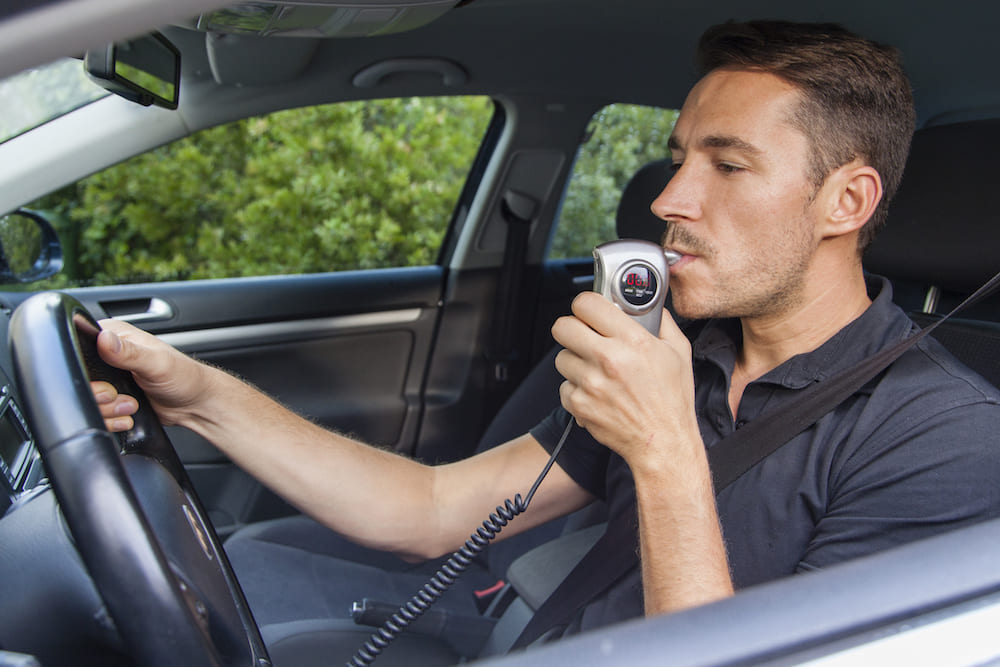In the State of Nevada, individuals charged with DUI offenses may end up installing what is known as an ignition interlock device (IID) as part of their sentences. However, many misconceptions exist surrounding these devices, what is involved and what they mean for the driver.
1. What Is An Ignition Interlock Device (IID)?
An IID, sometimes referred to as a “breath interlock device” (BID), is meant to function like a breathalyzer that will disable the car from starting if the machine detects that the driver may be operating the car under the influence of alcohol. They are fairly small devices and are no bigger than an average mobile phone.
IIDs are installed on the car’s steering column near the vehicle’s ignition and have a mouthpiece where the driver is required to blow. If the driver does blow and the breath sample does not contain alcohol, the car will start.
IIDs are meant to detect even low levels of blood alcohol content and will disable the car from starting. The records from these tests will also be recorded and submitted to the court through the device so that the court has a record on the driver’s cooperation.
2. What Is A Rolling Breath Test?
IIDs also will test the driver’s breath during other parts of the drive to ensure that he or she is sober. After the car has started, the IID will continue to conduct what are known as “rolling tests” to ensure that the driver is not drinking while driving.
Usually the first test happens within the first 15 minutes of starting the occur and then occurs again at 45-minute intervals. The car will alert the driver that a rolling sample is needed, and he or she has around six minutes to provide that sample.
For safety purposes, if the driver fails one of these rolling tests, the car will not suddenly stop, which would be unsafe. Instead, the samples are registered as a “fail” in the log and reported to the court.
3. Who Needs An IID?
Anyone convicted of a drunk driving offense under Nevada law is required to have an IID temporarily installed in their cars. This list includes someone who was driving with a blood alcohol content (BAC) of 0.18 or higher, anyone convicted of the Nevada crime of felony DUI, someone convicted of the crime of drunk driving causing death or bodily injury, or someone convicted of the Nevada crime of vehicular homicide.
Judges are given discretion to have an IID imposed if BAC was less than 0.18, but this normally only happens when that person has a past DUI conviction or a habitual drinking problem.
4. Can A Defendant Get Out Of It?
If a defendant is convicted of a first-time misdemeanor DUI with no previous DUIs in the last seven years, it is possible he or she will get out of using an IID.
The defendant or his or her attorney will need to show that getting an IID would pose an economic hardship and that the car is needed to travel to and from work, obtain basic life necessities or is needed to transport the defendant or an immediate family member to and from school.
5. How Long Does The IID Need To Be Installed?
Once the defendant has the IID installed, he or she will need to provide proof to the Nevada DMV to get a Nevada restricted driver’s license or to get driving privileges reinstated.
It depends on the type of DUI the defendant was convicted of when it comes to how long the device must stay installed. For felony DUIs or offenses with BAC of 0.18 or higher, the term can be anywhere from 12 to 36 months. Misdemeanor DUIs with a BAC of less than 0.18 can be for periods of three to six months.
6. What Are The Penalties For Not Complying?
If the defendant does not cooperate with court order and does not get the IID installed, he or she could face anywhere from 30 days to six months in jail or 60 days to six months of home confinement with $500 to $1,000 in fines. The driver will also face suspension of his or her driver’s license, which can be three years for a first-time offense or five years for a second-time offense of not complying with an IID.
Contact The Hill Firm Today
If you have been arrested for a DUI while visiting Nevada, it is important you contact the Hill Firm today. We can meet with you to discuss your rights and all potential legal consequences from your arrest. Contact us at (702) 848-5000 for your free consultation today.

